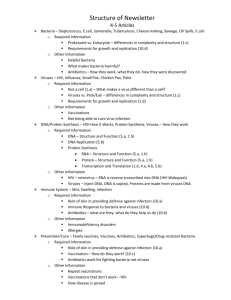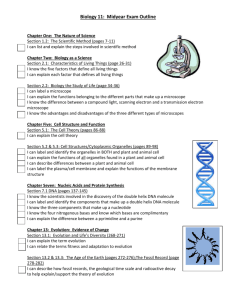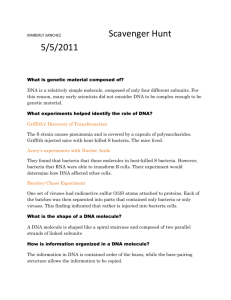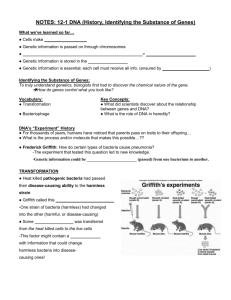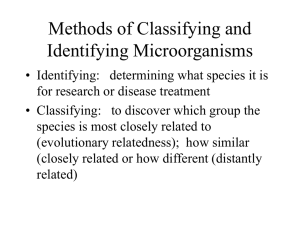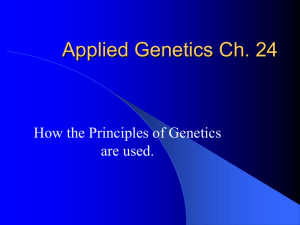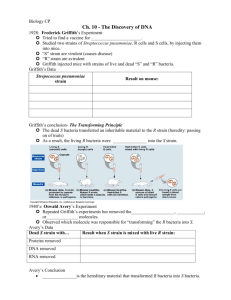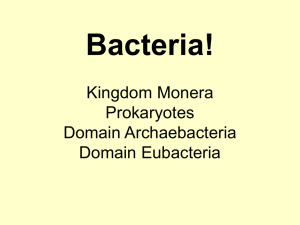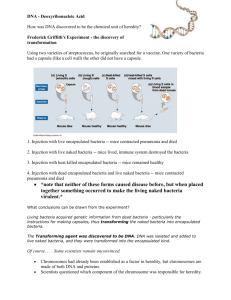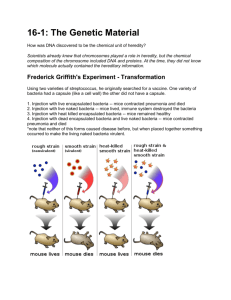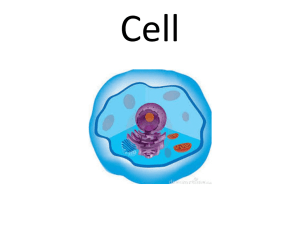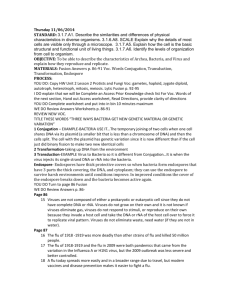9.1 fill in notes
advertisement
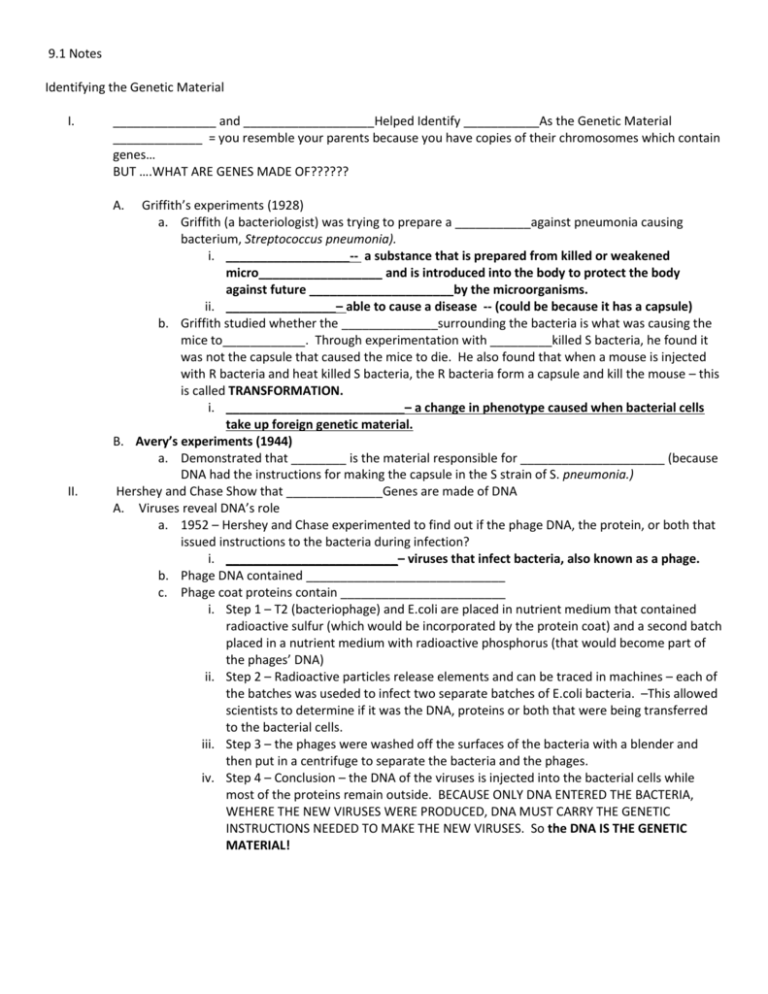
9.1 Notes Identifying the Genetic Material I. _______________ and ___________________Helped Identify ___________As the Genetic Material _____________ = you resemble your parents because you have copies of their chromosomes which contain genes… BUT ….WHAT ARE GENES MADE OF?????? A. II. Griffith’s experiments (1928) a. Griffith (a bacteriologist) was trying to prepare a ___________against pneumonia causing bacterium, Streptococcus pneumonia). i. __________________-- a substance that is prepared from killed or weakened micro__________________ and is introduced into the body to protect the body against future _____________________by the microorganisms. ii. ________________– able to cause a disease -- (could be because it has a capsule) b. Griffith studied whether the ______________surrounding the bacteria is what was causing the mice to____________. Through experimentation with _________killed S bacteria, he found it was not the capsule that caused the mice to die. He also found that when a mouse is injected with R bacteria and heat killed S bacteria, the R bacteria form a capsule and kill the mouse – this is called TRANSFORMATION. i. __________________________– a change in phenotype caused when bacterial cells take up foreign genetic material. B. Avery’s experiments (1944) a. Demonstrated that ________ is the material responsible for _____________________ (because DNA had the instructions for making the capsule in the S strain of S. pneumonia.) Hershey and Chase Show that ______________Genes are made of DNA A. Viruses reveal DNA’s role a. 1952 – Hershey and Chase experimented to find out if the phage DNA, the protein, or both that issued instructions to the bacteria during infection? i. _________________________– viruses that infect bacteria, also known as a phage. b. Phage DNA contained _____________________________ c. Phage coat proteins contain ________________________ i. Step 1 – T2 (bacteriophage) and E.coli are placed in nutrient medium that contained radioactive sulfur (which would be incorporated by the protein coat) and a second batch placed in a nutrient medium with radioactive phosphorus (that would become part of the phages’ DNA) ii. Step 2 – Radioactive particles release elements and can be traced in machines – each of the batches was useded to infect two separate batches of E.coli bacteria. –This allowed scientists to determine if it was the DNA, proteins or both that were being transferred to the bacterial cells. iii. Step 3 – the phages were washed off the surfaces of the bacteria with a blender and then put in a centrifuge to separate the bacteria and the phages. iv. Step 4 – Conclusion – the DNA of the viruses is injected into the bacterial cells while most of the proteins remain outside. BECAUSE ONLY DNA ENTERED THE BACTERIA, WEHERE THE NEW VIRUSES WERE PRODUCED, DNA MUST CARRY THE GENETIC INSTRUCTIONS NEEDED TO MAKE THE NEW VIRUSES. So the DNA IS THE GENETIC MATERIAL!
